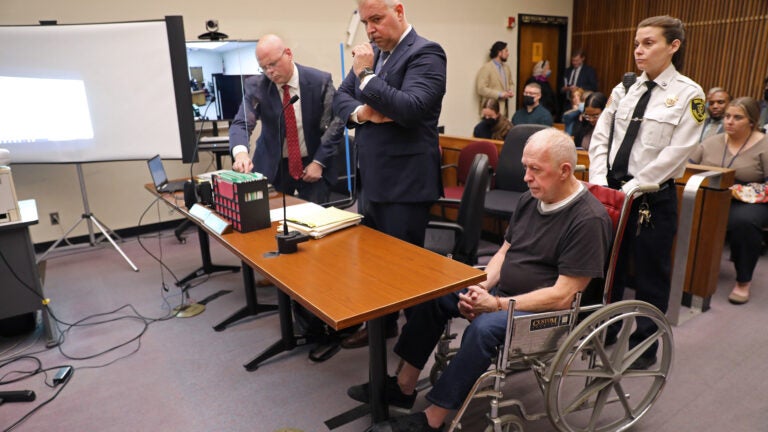
- Select a language for the TTS:
- UK English Female
- UK English Male
- US English Female
- US English Male
- Australian Female
- Australian Male
- Language selected: (auto detect) - EN
Play all audios:
The Right in Britain is up in arms at the Supreme Court’s ruling that Rwanda is not a safe country to send asylum seekers to. Predictably Boris Johnson sees a silver lining. Get Parliament
to declare that Rwanda _is_ safe. Abracadabra. Just like that as the late Tommy Cooper would say. Rishi Sunak, the Prime Minister, seems taken with the idea that an Act of Parliament in
Britain will make a small country in Africa safer. It’s not really a laughing matter. The flow of asylum seekers and refugees around the globe is a huge problem. It is especially one for the
tide of humanity trying to find shelter and somewhere they can call home from war, prejudice and instability. It’s also an acute political problem for the liberal West. The sight of
refugees (and some economic migrants) in small boats trying to cross the Channel or the Aegean or the Mediterranean (and all-too-often dying in the attempt) has turbo-charged the wave of
populism that has washed over Europe. It is a gift to the far-Right. Politicians like Victor Orban in Hungary, Giorgia Meloni in Italy and Johnson in the UK feed off these tragic odysseys,
which they characterise as invasions. Their stock-in-trade is wedge politics. Immigration, or the fear of immigration, played a big part in Brexit. The irony, of course, is that Brexit is
actually what started the small boats crisis. Before Brexit all EU countries had what is known as a return agreement with each other. Under this immigrants could be returned to the first
safe country they had entered. When the UK left the EU this arrangement fell away, opening the door to people smuggling gangs. There were no small boats in 2017 (the year after Britain voted
to leave the EU) or before. In 2022 over 45,000 people crossed the channel in dinghies.) Sir Keir Starmer will try and resurrect this return agreement if he gains power. He will find it
hard going. As it is, the Supreme Court ruling leaves the Government’s policy in pieces. This judgement by Britain’s senior justices is about as damning and as comprehensive as can be. Here
are the guts of the court’s unanimous decision: _“There is a legal rule that refugees must not be returned to their countries of origin, either directly or indirectly, if their life or
freedom would be threatened in that country.”_ This is known technically as _“refoulement”._ _“The legal test which has to be applied in this case is whether there are substantial grounds
for believing that asylum seekers sent to Rwanda would be at real risk of refoulement. The Court of Appeal concluded that there were such grounds. We are unanimously of the view that they
are entitled to reach that conclusion.”_ Rwanda, in other words, is not a safe place. Sending asylum seekers there would expose them to a regime with a poor human rights record, inadequate
protection and a high risk of being sent back to the country from which they had fled. This is hardly surprising. Paul Kagame, in effect Rwanda’s President-for-life, has a blemished human
rights record. He has been a spy, a warlord and, following the Rwandan genocide, Vice-President and now President. He’s bright and has transformed Rwanda from a Third World backwater to a
prospective middle-income country — or so he claims. Kagame is a PR agency’s dream and Rwanda the darling of the development community. But there is a darker side to Kagame the strongman.
Opposition is largely suppressed. This includes multiple reports of extra-judicial killings. His political opponents claim the country’s economic figures are massaged and that it is much
poorer than the official statistics suggest. Which perhaps explains why the British Government proposed to fork out £140m for Rwanda to host a few thousand refugees. Stopping the small boats
is one of Prime Minister Rishi Sunak’s five pledges to turn things around. There’s very little, if anything, he can do to rescue it before the general election. It was a flagship policy and
it’s holed below the waterline. Sunak has responded by saying that Britain is working on a “new treaty” with Rwanda to address the concerns voiced by the Supreme Court. But how can it? A
treaty, which admittedly has greater force than an agreement, is still a voluntary agreement between two sides. If asylum seekers sent to Rwanda are treated in a way that breaks undertakings
in such a treaty, how can Britain possibly enforce these? Supporters of the sacked Home Secretary Suella Braverman, who pinned her colours to this particular mast with gusto, will cry
betrayal. Judges are (again) being branded enemies of the people by, among others, the _Daily Mail._ This may not play as well as the _Mail_ thinks. People want to believe in something.
Disillusioned to the back teeth by politicians, voters seem to retain a high respect for an independent judiciary. They see these constitutional elders as a fixed point in a turbulent world.
A recent YouGov poll carried out for University College London’s Constitution Unit suggests that popular support for a strong judiciary playing an effective role in governing Britain
remains high. In any case, there’s no way flights with asylum seekers on board bound for Kigale will now take off before the next election. The Right will call this a defeat that sinks any
hope of a Tory recovery in the so-called Red Wall working class seats of the Midlands and the North. Letters of no confidence in the Prime Minister are trickling into the Chief Whip’s
office. Just days after sacking his Home Secretary in an attempt to appear strong, Sunak looks even weaker. Lee Anderson, the Tory party’s deputy chairman, suggests that the ruling be
ignored. Well, he would. Right-wing MPs are meeting to plan (plot might be a better word) a way forward. The slogan “take back control” is a dead duck. The civil war in the Tory party just
got hotter. Withdrawing from the European Convention of Human Rights (EHCR), a tactic favoured by the Right, would simply make matters worse. For a start, it would undermine the Northern
Ireland peace agreement (in which the EHCR is enshrined), provoking another row with Europe. It also runs contrary to Sunak’s reset attempt to present the Tories as a slightly more centrist
and responsible administration. Neither James Cleverly, the new Home Secretary, nor David Cameron, the former Prime Minister and his successor as Foreign Secretary, would approve of leaving
the EHCR. Would-be immigrants trying to get to Britain, whether in small boats or in the back of lorries, is a real problem. It requires a patient, coordinated international approach which,
granted, is hard work. But if the Tories are serious about tackling this problem, they need to start dealing with the world as it is and not as they would like to imagine it. A MESSAGE FROM
THEARTICLE _We are the only publication that’s committed to covering every angle. We have an important contribution to make, one that’s needed now more than ever, and we need your help to
continue publishing throughout these hard economic times. So please, make a donation._








